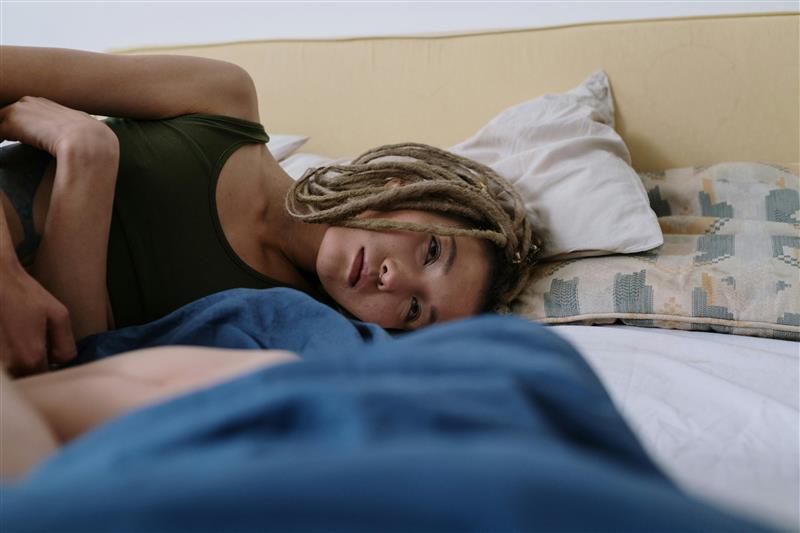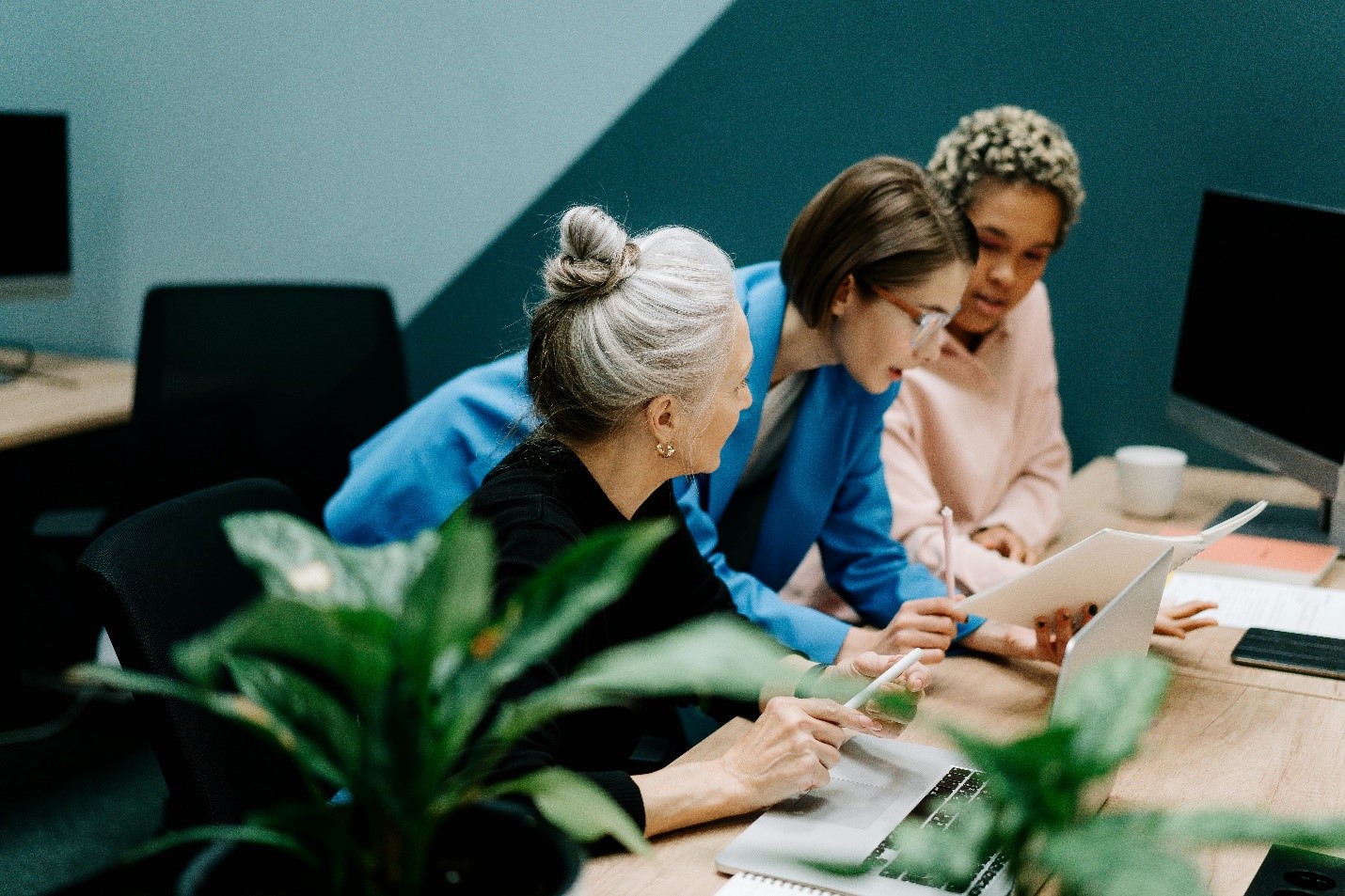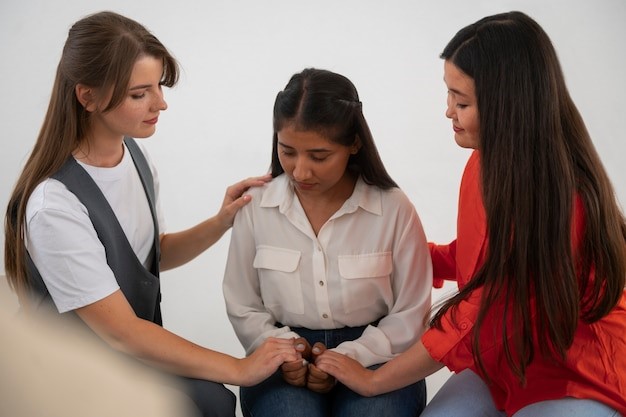What is endometriosis?
Endometriosis happens when tissue like the uterine lining grows outside the uterus. This can cause intense pain, heavy or irregular periods, digestive issues, and even fertility challenges. Endometriosis is more than just painful periods. It can affect multiple organs, including the ovaries, fallopian tubes, bladder, and intestines, causing inflammation, scarring, and adhesions that impact daily life. The condition is chronic and has no cure, but early diagnosis and management strategies, such as pain relief, hormonal treatments, and in some cases, surgery can help improve quality of life.
It is common for women to report feeling they have experienced “medical gaslighting” by their medical practitioners, and they are made to feel “the pain and heavy periods are not that bad” or they are “crazy”, resulting in their experiences are not validated. When a diagnosis of this chronic and debilitating condition is made a lot of young girls and women feel a sense of “grief and mourning”. The “cultural taboo, shame, medical racism, and cultural deficiencies” of this condition for young girls and women of color further compounds the psychological impact they may experience.
Endometriosis is a menstrual health condition affecting approximately one in 7 women of reproductive age (14% of the population), yet it takes an average of 6.5 years to receive a diagnosis and there is no cure for this debilitating disease. It is, therefore, crucial to raise the awareness of this menstrual condition, so that young girls and women can recognize the signs, not stay silent, and get the help they need sooner. Additionally, Endometriosis wellness coaching support in Melbourne provides guidance, emotional support, and holistic strategies to help women manage their symptoms and enhance their well-being.
Endometriosis Awareness Month: Supporting Women Through the Journey
March is Endometriosis Awareness Month, a time to highlight a condition that affects millions of women and girls worldwide. MenoBloom supports young girls and women suffering with endometriosis, acknowledging not only the physical difficulties but also the emotional and psychological effects. By increasing knowledge, encouraging support, and sharing inclusive wellness practices we can help young girls and women navigate this condition with more confidence, resilience, and care.
The Importance of Awareness and Medical Advocacy
Many women suffer in silence, dismissing their pain as “normal” due to societal stigma surrounding menstruation. Endometriosis Awareness Month serves as a crucial platform for “Endo Warriors” to:
- Educate women, healthcare providers, and the public on the signs and symptoms.
- Advocate for faster diagnoses and better treatment options.
- Support those affected through community efforts and open discussions.
The Common Symptoms of Endometriosis
The symptoms of endometriosis vary for each individual. Some of the most prevalent symptoms include:
- Severe pelvic pain: Usually associated with your menstrual cycle, but can persist throughout the month.
- Dysmenorrhea: Severe abdominal cramps that disrupt everyday life
- Intercourse pain or post-coital pain: Experiencing discomfort or sharp pain during or after intercourse
- Menorrhagia: Severe bleeding or prolonged periods.
- GI problems: Such as bloating, constipation, or diarrhea, especially during your period.
- Infertility: It significantly impacts egg quality and implantation.
- Bowel symptoms – endometriosis lesions can grow in the walls of the bowel.
- Bladder symptoms – endometriosis can affect the urinary system due to the close position of the bladder to the uterus.
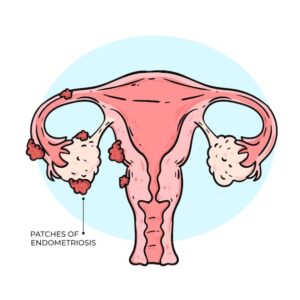
Causes and Risk Factors
Although the exact cause of endometriosis is unknown, there are a few theories:
- Retrograde menstruation: The menstrual blood flows backwards into the pelvic cavity instead of out of the body.
- Genetics: There is an increased likelihood of endometriosis if there is a family history of the disorder, and it is hereditary.
- Immune system abnormalities: A weakened immune system makes it difficult to kill the misplaced endometrial cells.
- Hormonal factors: Higher levels of estrogen irregular tissue development.
- Surgical scars: Past surgeries, such as C-sections, can accidentally deposit endometrial tissue elsewhere.
Endometriosis affects the reproductive organs, and can also be found in areas around the bowel and bladder, and in the joints, skin, brains, and lungs (Endometriosis Australia). For those with symptoms, endometriosis sometimes may feel like other conditions that can cause chronic pelvic pain. These include pelvic inflammatory disease or ovarian cysts. Or it may be confused with irritable bowel syndrome (IBS), which causes bouts of diarrhea, constipation and stomach
cramps. It is common for a lot of young girls and women to be diagnosed with IBS and endometriosis, both conditions can exacerbate pelvic pain affecting the bladder and bowel. This makes it harder for health care practitioners to find the exact cause of the symptoms, and could result in a misdiagnosis of IBS instead of endometriosis.
Emotional and Mental Health Impact
The emotional and mental health issues associated with endometriosis are frequently disregarded. Stress, worry, lower self-esteem, low moods, and despair can result from managing chronic pain, difficulties conceiving, and the unpredictable nature of symptoms. Coping with endometriosis and enhancing general well-being require emotional regulation and prioritizing mental health.
Understanding the Emotional Impact of Endometriosis
Endometriosis is a disease with more than physical symptoms. As they negotiate life with this chronic illness, many young girls and women go on an emotional rollercoaster encompassing frustration, depression, and feeling anxiety. It is common to feel helpless due to the uncertainty of flare-ups and the difficulty in locating a suitable medication. Young girls and women dealing with endometriosis may feel misunderstood or be unable to engage in activities because of pain, social isolation may also occur.
How Stress Affects Endometriosis
Endometriosis symptoms can be intensified by chronic stress, and it can be a viscous cycle of emotional suffering aggravating physical pain and vice versa. Stress hormones such as cortisol can increase inflammation and pain sensitivity, therefore complicating symptom control. Therefore, addressing emotional well-being not only helps mental health but also can help reduce the intensity of physical symptoms.
Creating a Holistic Approach to Wellness and Collective Well-Being
At MenoBloom Hormonal Wellness Clinic, we understand that living with endometriosis is not just about managing the physical symptoms and pain. Emotional resilience, stress management, and self-compassion are essential components of well-being. Individuals with endometriosis can improve their quality of life by incorporating mindfulness, emotional support, and self-care into their daily routines.
How We Can Support Young Girls and Women with Endometriosis
At MenoBloom, we believe in a holistic approach to managing menstrual health conditions such as endometriosis. We can support young girls and women on this challenging journey in these ways:
Encourage Early Diagnosis – More awareness means more young girls and women recognize symptoms and seek help sooner.
Prioritize Emotional Well-being – Stress management, mindfulness, and therapy can make a huge difference in coping with mental strain.
Focus on Lifestyle Changes – A nourishing diet, movement, and quality sleep can help manage symptoms and improve overall well-being.
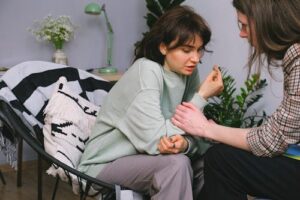
Build a Supportive Community – Having a safe space to share experiences and connect with others who understand can be life-changing.
Empower Self-Advocacy – Women deserve to be heard. Encouraging them to push for answers, explore treatment options, and prioritize their health is key
Let’s Raise Awareness Together
This Endometriosis Awareness Month, let’s break the silence around this condition. Talk about it, support research, and advocate for better care. No young girl or woman should feel alone in her struggle with endometriosis
At MenoBloom, we are here to offer support, guidance, and a compassionate space for women to navigate their health with strength and resilience. Let’s keep the open conversations going to ensure every young girl and woman receives the care she requires and deserves.
Sources
https://endometriosisaustralia.org – Endometriosis Australia
https://endometriosis.ca/: – The World Endometriosis Society
https://healthdirect.gov.uk – Endometriosis | healthdirect
https://hopkinsmedicine.org./health/conditions-and-diseases/endometriosis – Endometriosis | Johns Hopkins Medicine
https://www.jeanhailes.org.au/health-a-z/endometriosis – Jean Hailles
https://www.psychiatry.org/news-room/apa-blogs/how-endometriosis-can-impact-mental-health – American Psychiatric Association.y
Van Stein K, Schubert K, Ditzen B, Weise C. Understanding Psychological Symptoms of Endometriosis from a Research Domain Criteria Perspective. J Clin Med. 2023 Jun 15;12(12):4056. doi: 10.3390/jcm12124056. PMID: 37373749; PMCID: PMC10299570.
Images by Freepik
